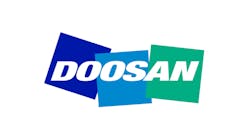Westport in R&D Project for Natural Gas-Fueled Locomotives
Westport Innovations Inc. has an agreement in place with Electro-Motive Diesel (EMD) to integrate its high-pressure direct injection (HPDI) technology and natural gas-fuel system into an EMD locomotive. Canadian National Railways will supply the locomotive, and a demonstration of the natural gas-fueled train is expected as part of the Sustainable Development Technology Canada (SDTC) project, with the railroad and Gaz Metro, a gas distributor.
SDTC is a not-for-profit company created by the Canadian government to help commercialize emerging clean technologies. Earlier this year, STDC committed C$2.3-million to Westport to develop Westport’s HPDI technology for high-horsepower applications. Vancouver-based Westport develops engines powered by alternative fuel, low-emissions technologies, such as compressed natural gas, liquefied natural gas, hydrogen, and Renewable Natural Gas. Electro-Motive Diesel is a diesel-electric locomotive OEM.
Westport will provide the consortium with its core technologies for the engine and fuel system, and intellectual property. EMD will contribute expertise for integrating the natural-gas engine, related components, and controls for the locomotive.
"EMD brings a great deal of experience and engineering know-how in locomotive applications," according to Westport’s senior director for High Horsepower, Paul Blomerus. " Westport's HPDI technology is ideally suited to high-horsepower applications, such as locomotives, as it retains the diesel engine's favorable operating characteristics of high torque and power, transient response and efficiency, while reducing carbon emissions.”
Blomerus predicted a successful demonstration program that would “potentially transform the rail industry."
Research by the United Nations Statistics Division, cited by Westport, finds that railroads worldwide burn 9 billion gallons of diesel fuel per year. Westport said natural gas-fueled locomotives will reduce significantly the cost of transporting resources and manufactured goods, and reduce greenhouse-gas emissions by up to 27%.
